Ethereum is now three years in the making. Vitalik Buterin, the Russian-Canadian whizkid who co-founded the platform, hoped that popular DApps (decentralized applications) would become the new normal. Little did he know that his smart contract blockchain would wind up being a wildly popular way to raise capital, known as the initial coin offering (ICO).
His vision has been somewhat perverted by a new wave of speculators betting big on crypto. That doesn’t mean, however, that no decentralized development is happening on the Ethereum blockchain. Far from it. In fact, building a smart contract is easier than you think. And there are some crafty development teams bringing novel ideas to life in the way Ethereum initially intended.
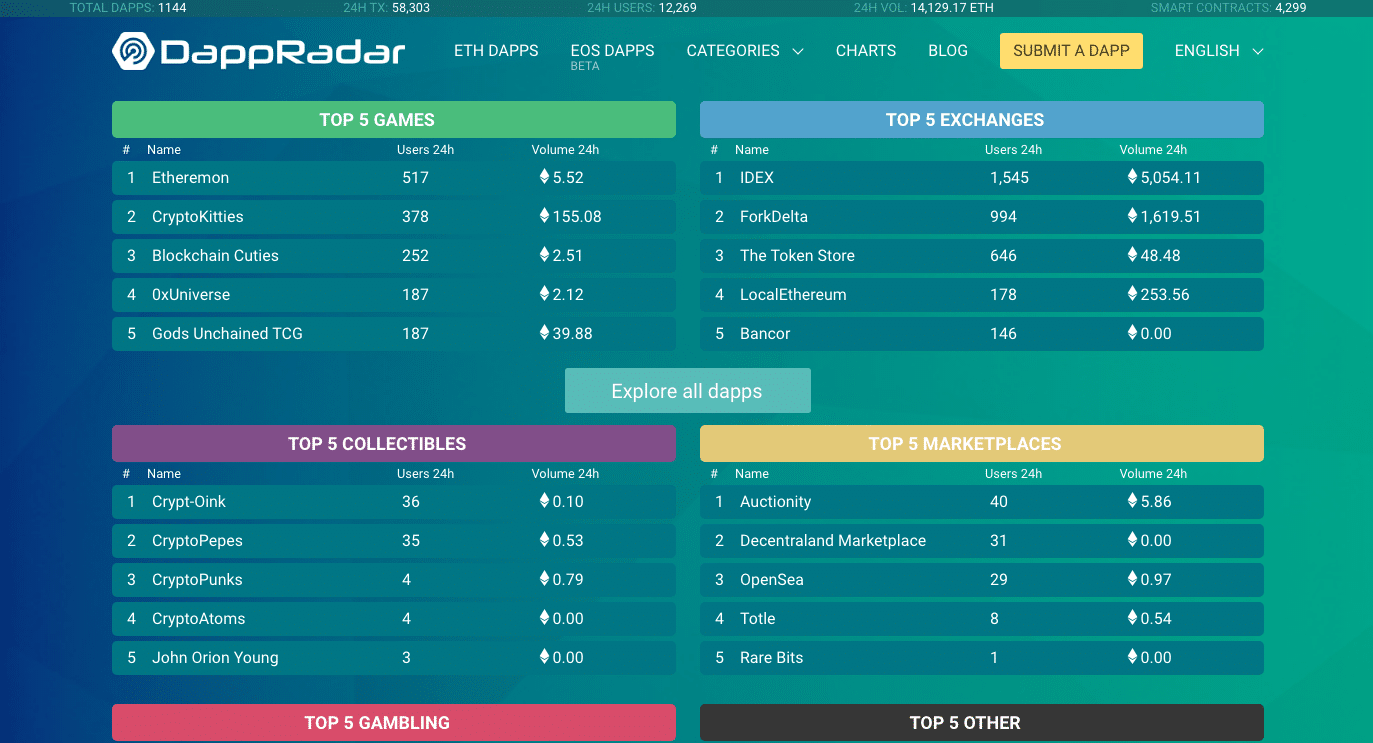
With data from DappRadar, we decided to take a look at several popular DApps that are actually attracting users. Our top five list is based on Ethereum volume but also on the uniqueness of the application.
1. IDEX
IDEX is a popular decentralized exchange created by Aurora. The company is developing a stack of blockchain based financial services. User adoption via blockchain is still slow but this gamble will probably pay off big as more users look to crypto for banking solutions.
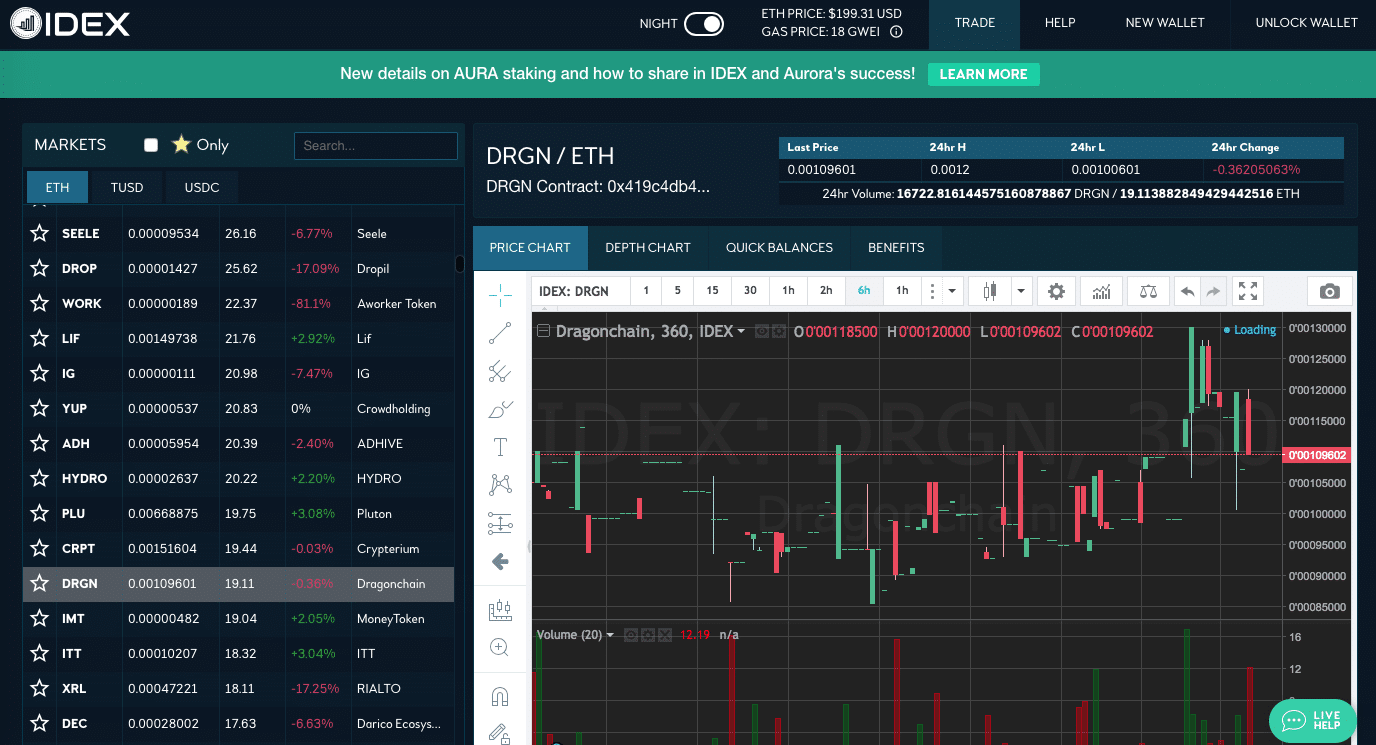
It’s interesting to note that decentralized exchanges continue to see the most volume as popular DApps in the space. Speculators are still the first adopters. As other kinds of applications bring more use-cases we will hopefully see things balance out a little more.
IDEX is already outperforming other decentralized exchanges like ForkDelta, by quite a large margin. That’s impressive if you consider that it’s less than a year old. Since IDEX is built on Ethereum it focuses only on Ethereum and ERC20 token trading. The platform fully supports MetaMask and more secure solutions like the Ledger hardware wallet.
2. Ethlance
Ethlance, another one of our popular DApps, is a decentralized marketplace for jobs which are mostly remote-based. Online job portals are not a particularly new innovation. Companies like Upwork, 99Designs, and Fiverr are regular drawcards for freelancers and employers in the new world of the internet.
So what’s the benefit of a blockchain-based solution? Simple. Decentralization. Upwork currently charges an incredibly expensive 20% fee per job for most freelancers when starting out. Take into account transfer fees to your country and you can see why many job seekers simply refuse to use this service.
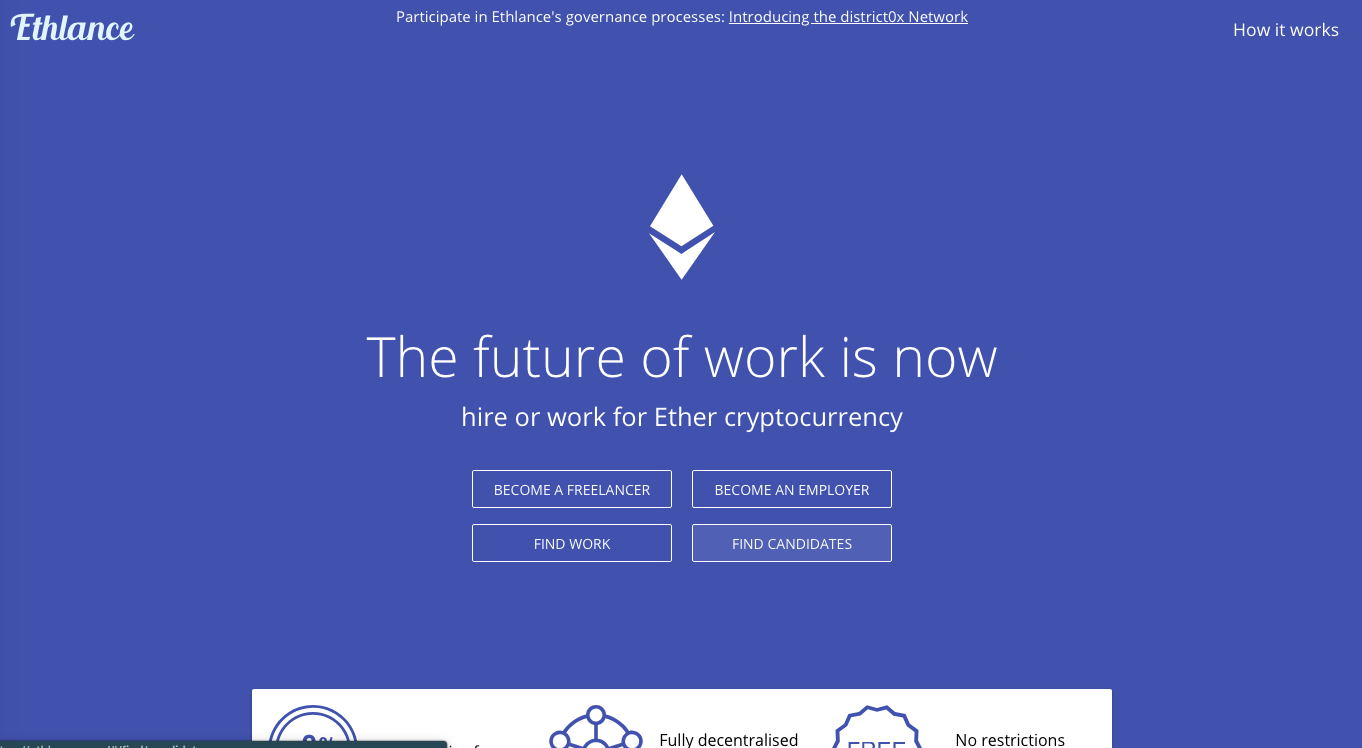
Ethlance, on the other hand, is completely free. That’s right, zero fees. You do, however, have to pay gas fees on the Ethereum network. Right now, this is a bit of a hassle but when Ethereum moves over to the proof-of-stake model, the Ethlance service should be much easier to use.
3. Auctionity
Auctionity is a blockchain auction house for crypto-collectibles. Try saying that sentence three times fast! Anybody can create a virtual auction of their favorite digital assets on the global network. A key difference here from other platforms is that assets need to be non-fungible. In other words, you cannot sell Ethereum tokens. Digital assets need to be unique and represent some sort of individual value, unlike tokens.
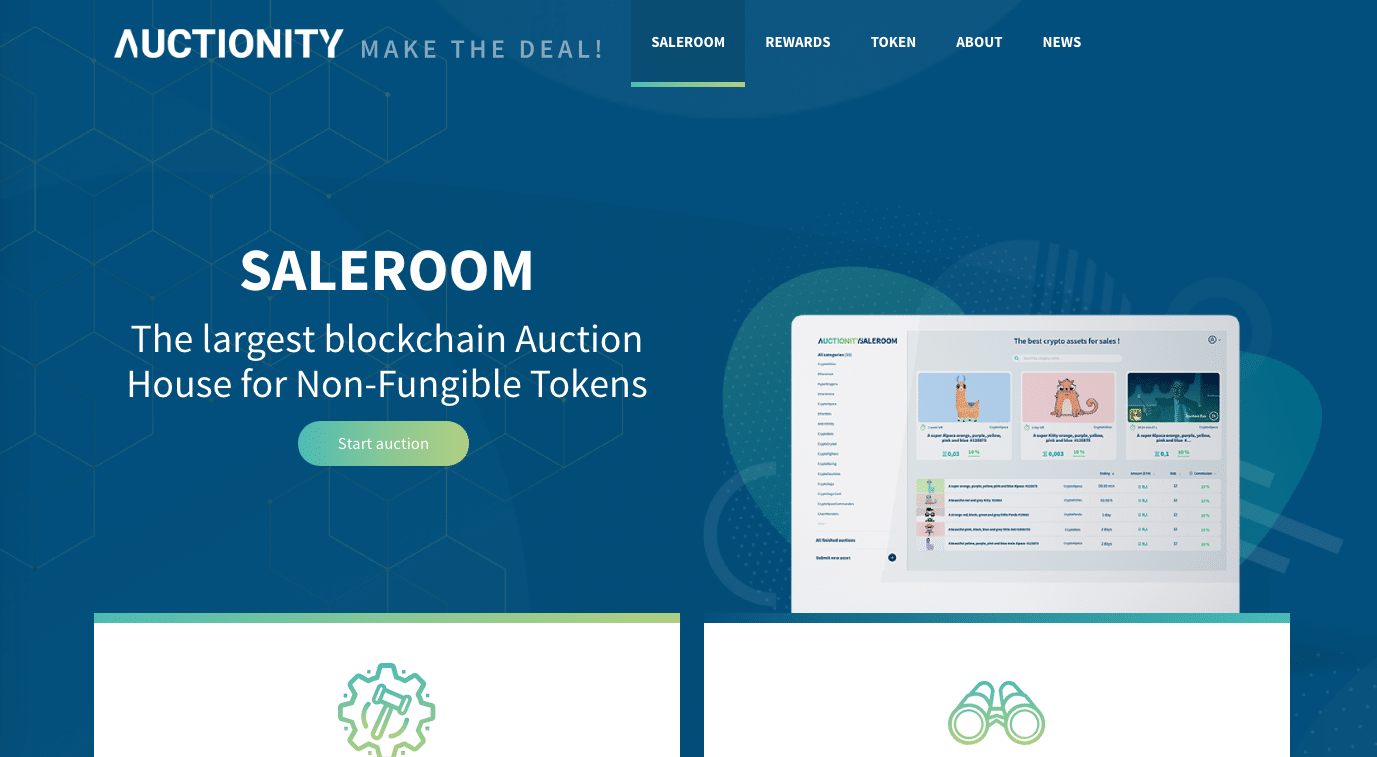
Currently, most assets for auction include Cryptokitty and Etheremon characters. That may not appeal to your taste. The upside potential, however, is pretty big. Expect more artists, musicians, and creators to flock to the platform when they start to appreciate the value of being paid in Ethereum over USD and other fiat currencies.
4. LocalEthereum
In 2016, the Ethereum price took off and traders and investors really started paying attention. It’s not surprising then that an alternative to LocalBitcoins would appear. For those not in the know, LocalBitcoins is a popular internet service which allows you to buy and sell Bitcoins worldwide over the counter (without an exchange).
LocalEthereum uses smart contracts and escrow to lock up a seller’s Ethereum until he or she confirms that they’ve received fiat currency (e.g. dollars and euros) from a buyer either through cash, bank transfer, PayPal, or other methods.
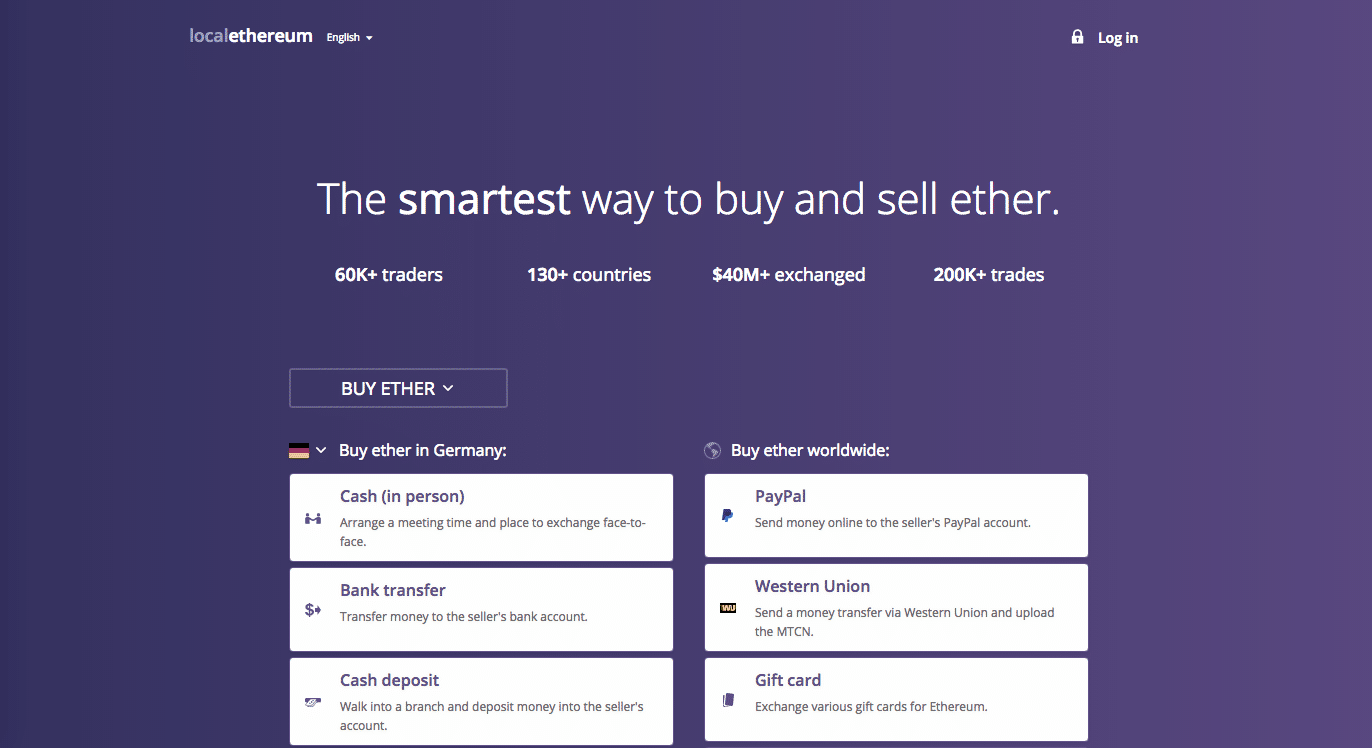
The traditional middleman (exchange) has been eliminated. However, in the case of a dispute, an arbitrator would need to step in. The arbitrator can only award Ether to one of the two parties and not itself. For now, this arbitrator is LocalEthereum itself, though, with time, even this aspect could be decentralized to members of the community.
5. Aragon
Aragon is an incredibly ambitious project looking to take on the limited nature of local business management. Today, most businesses incorporate in one country and are therefore subject to its laws and regulations. This becomes difficult to manage as more and more employees turn their efforts to working remotely for a living.
Aragon is focusing their efforts on helping entrepreneurs of the future to create DAOs, or decentralized autonomous organizations. Essentially, Aragon is being built with core business functionality in mind. A point and click business if you will. Wherever you are, as long as you have access to the internet of course.
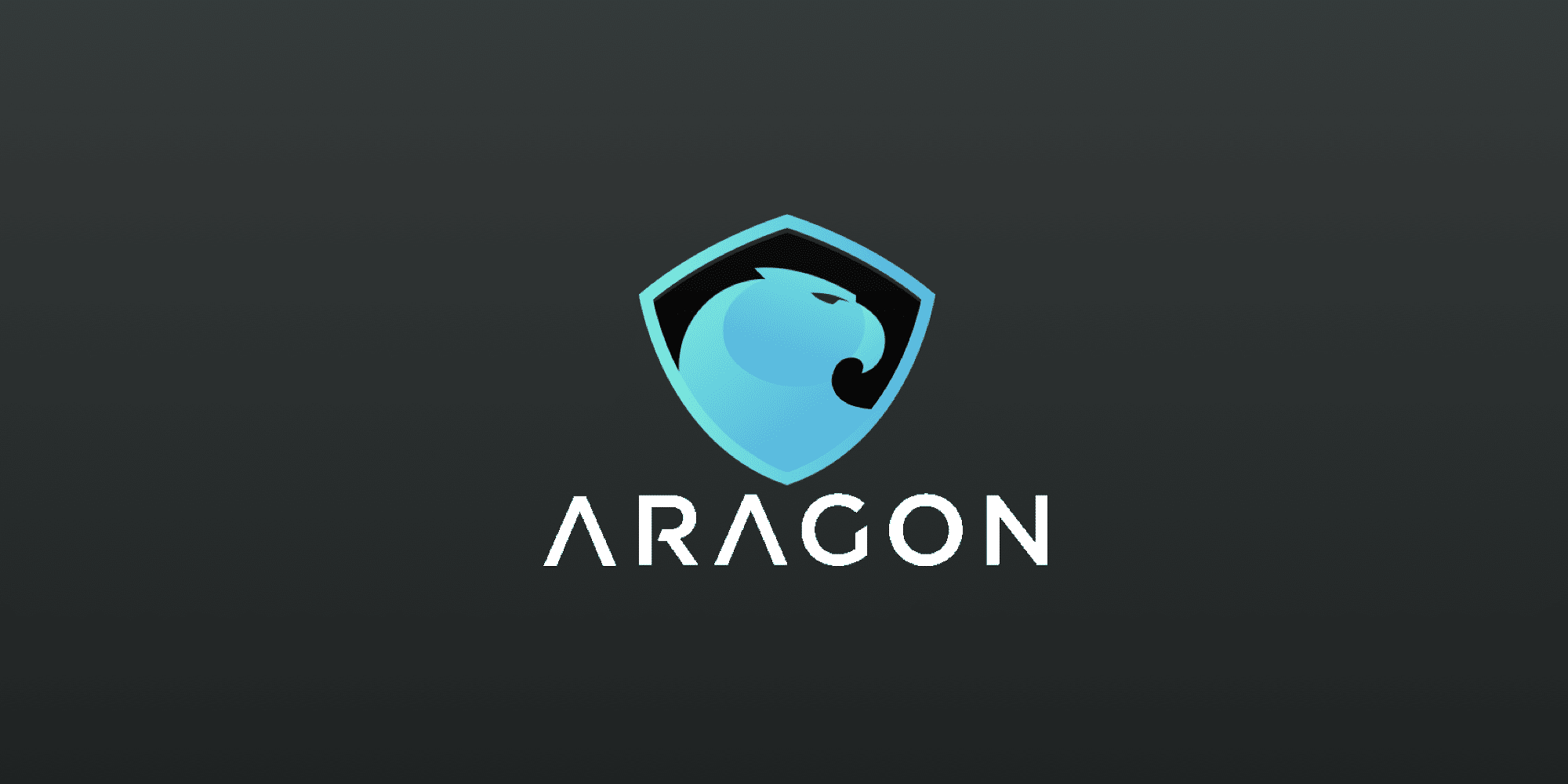
It remains to be seen whether DAOs could completely replace a typical business hierarchy. It certainly makes the most sense in countries where starting a business is often hampered by heavy government regulation and barriers to small business owners.
Take a look at our Aragon guide for a deeper look into the DAO vision.
Closing Thoughts: Five Popular DApps
Popular DApps continue to come and go as entrepreneurs struggle to find applications that will draw the crowd for the long haul. Informed readers will note that we didn’t include Cryptokitties in this list. While that app continues to remain popular, the crypto press has covered it to death and there are certainly more interesting projects out there that deserve a look.
There really is no comparison when it comes to highly centralized networks like Facebook, which has well over a billion users. Even the most popular DApps can’t currently compete. But even Facebook took several years before the wheels really started rolling. We are at the tip of the iceberg and some, if not all, of the projects we looked at may turn out to be 10,000 Bitcoin value businesses in the next five to ten years.
This article by Ryan Smith was originally published by CoinCentral, our media partner.

Ryan Smith
Ryan is a web developer, writer, and cryptocurrency trader who hails from sunny South Africa. He eats, breathes and lives crypto. When not meticulously looking over charts he can be found planning his next road trip or running around a 5-a-side soccer field.





